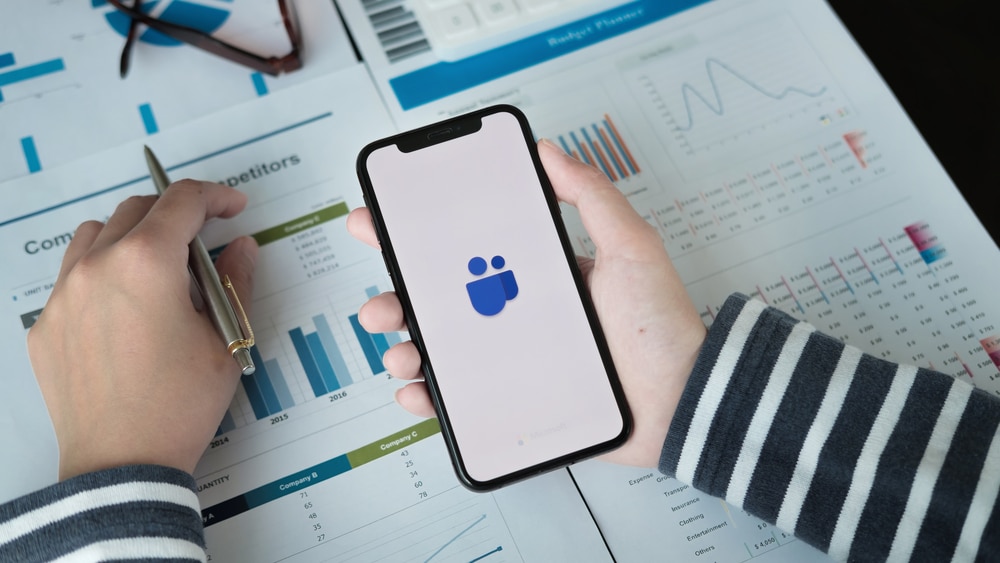
6 IoT trends for 2022
The Internet of Things (IoT) has seen incredible growth in a relatively short period. Despite being fairly new, smart devices are everywhere in commercial and consumer circles, and they show no signs of stopping.
While the IoT’s growth may remain unchanged in 2022, it will shift and evolve. Here are six trends that will shape the IoT this year.

Five pointers for choosing a Threat Intelligence Platform: What to look for in a TIP
As 2022 gets under way and the new financial year looms, many companies are starting to identify the key strategic focus areas for the year ahead and the technology investments needed to deliver them. Given the aggressive cyber threat environment experienced over the past 18 months, cybersecurity investment is high on the list for many. Increasingly, organizations are building out their own Security Operations Centre (SOC), incident response capabilities and threat intelligence teams, as they aim to meet risk management and compliance demands and proactively defend the business.
However, building a SOC unleashes a deluge of data from disparate sources which often overwhelms in-house teams and prevents the SOC from functioning effectively. The solution -- one which is on many 2022 shopping lists right now -- is a Threat Intelligence Platform.

Power in people: How human capital will determine tech success
According to the Economist, one of the most significant outcomes of the pandemic will be "the infusion of data-enabled services into ever more aspects of life." We were already expecting a transition to digital transformation thanks to technological advancement, dubbed the "fourth industrial revolution".
However, following on from the pandemic which forced countless businesses to switch to remote working virtually overnight, we expect digital transformation to continue to be adopted on a larger and more rapid scale -- becoming an even more prominent objective for organizations in the future.

Implementing Zero Trust? Prioritize people as much as tech
The trust model of cybersecurity is broken. Since the shift to cloud and the move away from siloed on premise infrastructure, IT environments have grown ever more complex, expanding in both size and variety of components.
Trust is permissible when a small team of engineers is accessing on premise infrastructure. However, in the modern hybrid systems employed by many businesses, trusting the multitude of end points and variables to manually adhere to all authentication measures and preventative procedures is risky. We all know that just one phishing email is enough to potentially lead to a critical data breach. Such incidents can be incredibly damaging for a business: IBM estimated that this year data breaches cost businesses an average of $4.24 million -- a 17 year high.

How to transform the role of a CISO for the digital-first economy
With any business venture, all organizations aim to minimize downside risks and maximize upside opportunities at some basic level. With the rapid transition to digital-first technologies, organizations are offering new products to improve customer experiences by delivering the value proposition of any time, any place. But with convenience often comes risk.
For instance, restaurants and retailers are enabling GPS data using third-party applications through API integrations to power location-based services. These applications elevate the user experience and maximize business profits through customized sales offers and personalized customer service experiences. But at what cost?

Complying with the DoJ's Civil Cyber-Fraud Initiative
Under the Department of Justice’s (DoJ) new Civil Cyber-Fraud Initiative, government contractors will be under enhanced accountability for implementing cybersecurity measures and reporting breaches and incidents. The DoJ’s unveiling of the initiative comes in response to criticism of current department security protocols, which have often wavered across the board and permitted cybersecurity-related fraud through a lack of enforcement.
The Civil Cyber-Fraud Initiative will both focus on standardizing cybersecurity procedures for government contractors to follow and curbing cybersecurity-related fraud where companies fail to report cyber incidents.

Rebalancing the cybersecurity equation to mitigate ransomware risks
With the average cost of a data breach now at $4.2 million, growing cyber threats like ransomware and the hybrid workforce have organizations worldwide looking to mitigate risk at every layer of the organization.
Securing your organization is like balancing an equation: people + skills + technology = security. Where many security strategies fall short is having an unbalanced equation.

Why breach-likelihood will be a game-changer for mandating cyber insurance
According to a Cybersecurity Ventures report, 2021 was predicted to have one cyberattack every 11 seconds and the cumulative cost to repair these post cyber incidents will soar to over $6 trillion in 2022.
As the digital business ecosystem expanded and the attack surface grew in tandem, cybersecurity investments have remained products and services driven. However, this approach only allows enterprises to accept or improve their cyber risk posture. Now, as the costs to manage and mitigate cyber risks rise – the average ransom demand increased by 170 percent from 2020-2021 -- businesses are seeking to 'transfer' their cyber risks through insurance. Last year alone, cyber insurance claim frequency increased by 46 percent for IT services, 53 percent for professional services, and 263 for the industrial industry, according to a report by Coalition.

What can the IT industry expect this year? More of the same -- change
As the age-old saying goes: Change is the only constant in life. The same is particularly true for the IT industry. New technologies birth newer technologies and the cycle of exploration, innovation, and mastery continues on repeat. In my opinion, it’s one of the many perks of working in IT. Variety is the spice of life, to quote another cliche.
The last two years have been, let’s just say, especially spicy -- with all sorts of unexpected challenges and advancements. The year ahead is sure to bring about more of the same. While hindsight may be 20/20 when it comes to 2020 (and 2021), the trick for IT professionals, and the organizations that employ them, will be trying to stay ahead of the ever-changing curve in 2022.

Digital transformation: Recovering the meaning behind an overstated concept
The phrase 'digital transformation,' or DX, in short, is thrown around at an alarming level in the promotional and marketing materials of large tech companies and consultancies. But what does digital transformation really mean?
Digital transformation in today’s tech world is a buzzword, fashionable jargon that’s often thrown around without seeing any real value or understanding. The term assumes that everyone who creates something new is innovative, but that simply isn’t the case. Many industries have turned to modern tech to rejuvenate or enhance their business solutions. But, that doesn’t mean they’re undergoing a digital transformation. The wording and ideologies used to describe digital transformation have caused the term to be lost in translation. How do we recover the meaning behind an often overstated concept?

5 data warehouse myths that hold development back
Businesses now live and die by data. From managing resources and analyzing performance to hyper-targeted marketing and behavioral analytics, data has become essential to the way companies operate. The demand for data has never been higher -- and it’s only increasing.
This pressure passes directly onto the people who help meet this demand. Data warehouse (DW) and analytics professionals are having to develop new data sets and produce insights at a record pace, all whilst keeping costs down. It’s clear DW acceleration is critical and this is acknowledged across the industry: according to WhereScape and TDWI’s research published this year, 63 percent of data warehouse professionals consider DW acceleration extremely important.

Maintaining migration success: Pre-migration tips for moving Teams data
As our world grows increasingly digital, the importance of an effective virtual workplace becomes a greater priority for businesses everywhere. With many companies relying on remote workforces, tools like Microsoft Teams have become critical to enabling collaboration and engagement among remote employees. As a result, Teams adoption has skyrocketed. In July 2021, Microsoft reported 250 million monthly active users on Teams.
As corporations continue to leverage cloud-based solutions to enable remote work, the need to keep their digital environments secure and organized remains vital.

In 2022, security is imperative in the overall company strategy
Over the last 18 months, the world has changed which has impacted everyone personally and in the workplace. Businesses now have to adopt more flexible, work-from-anywhere strategies. This has increased the potential for security attacks that IT and Operations Teams need to defend against with the majority of employees remotely connecting to critical business systems.
With more companies embracing cloud communications and enabling employees to connect from a myriad of devices using a plethora of business applications, the opportunity for bad actors to compromise critical systems has expanded and security can no longer be an afterthought. It has to be included in the overall company strategy. Here’s what we foresee on the horizon for infrastructure security in 2022.

Exploring the use of the Python programming language for data engineering
Python is one of the most popular programming languages worldwide. It often ranks high in surveys -- for instance, it claimed the first spot in the Popularity of Programming Language index and came second in the TIOBE index.
The chief focus of Python was never web development. However, a few years ago, software engineers realized the potential Python held for this particular purpose and the language experienced a massive surge in popularity.

Developer experience in 2022 -- why will it be so important?
In the past, companies have all had a solid focus on customer experience. They built a better, more efficient experience for those they sell to. With this in mind companies saw a rise in sales and loyalty. They realized keeping the customer happy was the key to being competitive in the market.
In parallel companies were also working with their employees to better improve and invest in their experience. They quickly realized that without happy employees they could not keep their customers happy. It looks like developer experience will be going through a similar shift in priority. They are now more and more becoming the focus of cloud providers and technology companies. These companies are investing and building tools to help developers work better, faster, and more efficiently.

